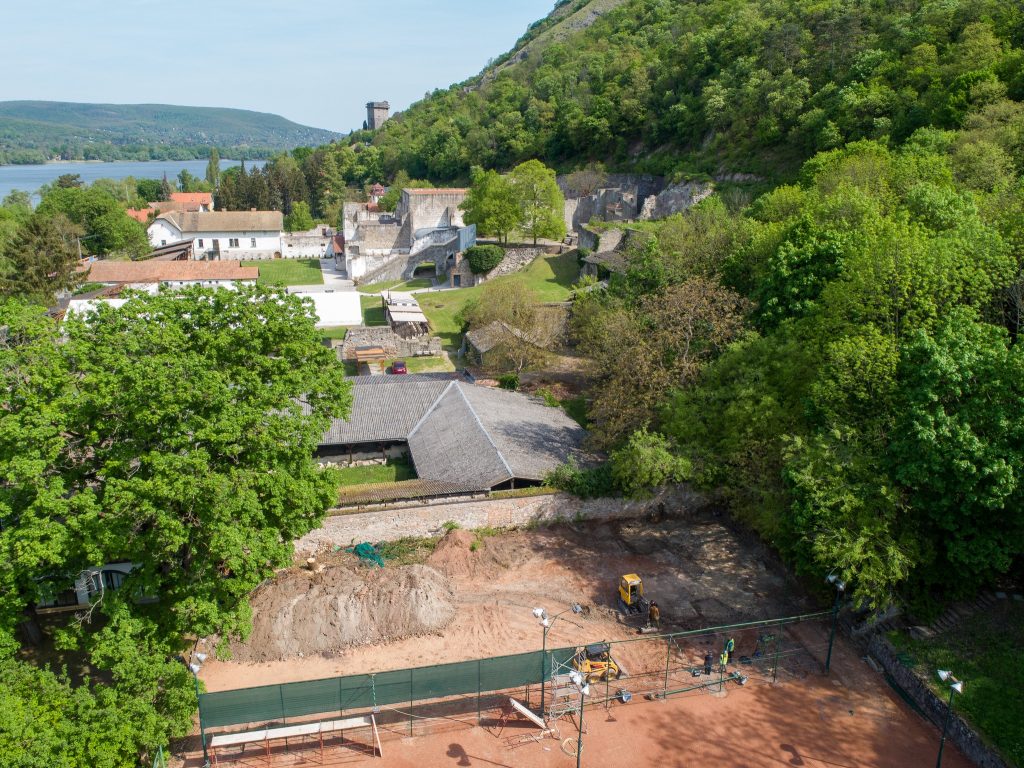Share This Article
During an archaeological excavation in Visegrád, a fortified medieval castle on a hill overlooking the Danube in northern Hungary, the ruins of the Church of the Virgin Mary, built during the reign of King Sigismund, were found under a tennis court.

Traces of a clash from hundreds of years ago were also discovered in the area surrounding the crypt in front of the excavated high altar.
Sigismund of Luxembourg founded a Franciscan monastery that included the Church of the Virgin Mary, which was constructed next to his palace. Charles IV’s son, Sigismund, ruled as king of Germany, Bohemia, Hungary, and Croatia before ascending to the throne as Holy Roman Emperor in 1433 and dying in 1437.

The former tennis court became a development area of the Visegrad Renaissance program. Photo: MNM National Archaeological Institute, King Matthias Museum
“No doubt, most promising for archaeologists was the excavation of the tennis court next to the royal palace, where the Franciscan monastery founded by Sigismund of Luxembourg once stood.”
On the first day, the church’s remnants were discovered, and in front of the high altar, a crypt was discovered. Among the debris of the collapsed crypt lay the remains of three bodies. The objects found beside them, such as a spur and several shots (pellets made of lead), suggested that they were soldiers. There was a copper bowl near them, which may have been used for defense, as its surface shows indentations made by weapons.

After the beginning of the archaeological work, the foundation of the buttress of the sanctuary of the church belonging to the monastery was found. Photo: MNM National Archaeological Institute, King Matthias Museum
This could suggest that the church was not only the scene of looting, but also of a bloody clash.
In 2021, the Visegrád Renaissance Development Program was initiated with the goal of revitalizing Visegrád Castle and its environs. The Royal Palace, the Visegrád Citadel, and Solomon’s Tower will all be rebuilt in the upcoming years in addition to the Lower Castlе.

The lower, fortified part of Visegrád also revealed traces of an Ottoman settlement, including coins, an Ottoman cemetery, and an oval-shaped oven. Photo: MNM National Archaeological Institute, King Matthias Museum
The castle system’s upper and lower levels will be connected, and the complex will be made pedestrian-friendly. In order to allow for visits to the citadel, lower castle, and portions of the Royal Palace during the reconstruction, the work will be done in stages.
